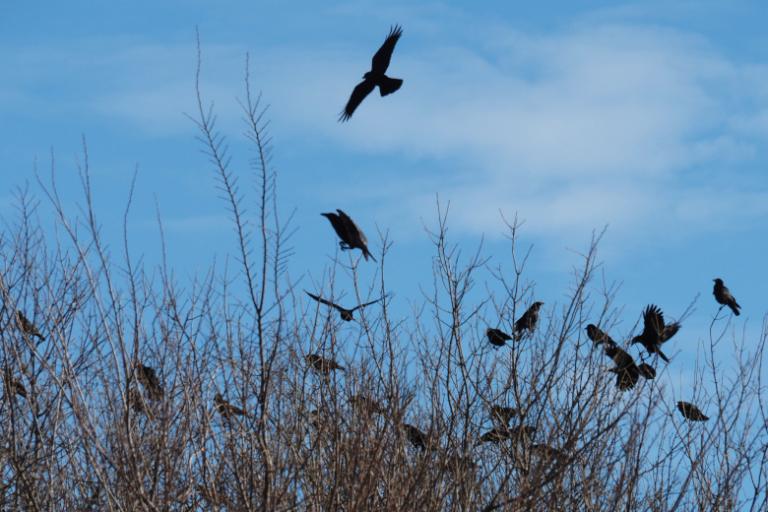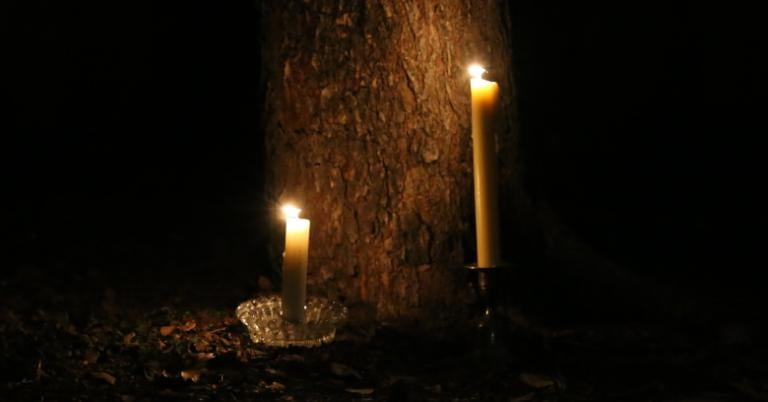This year will mark the 30th anniversary of my discovery of Paganism, witchcraft, and magic. I’ve been a Pagan for almost as long as I was a not-Pagan. Finding and following this path was critically important to my spiritual growth and depth, and to my happiness. It has been and continues to be a very good thing for me, and I want to share what I’ve found with others who need and want it.
But it’s not for everyone.
Some people are quite happy as Christians or Buddhists or atheists (yes, there are non-theistic Pagans – here I refer to those who are explicitly non-religious). Some have such a strong cultural connection to the religion of their childhood that they can’t imagine becoming something else.
But even for those who are actively seeking a new spiritual path, Paganism isn’t for everyone.
Before I go on, I need to clarify that I’m speaking of Paganism as I practice it. Paganism is a very Big Tent that defies easy definition and classification. My Paganism is animistic, polytheist, and magical. If your Paganism is naturalistic or pantheistic, that’s fine – and perfectly valid. This is what I do.
And it’s not for everyone.
It’s not for those who must have certainty
Science deals with what can be observed, measured, and repeated. Religion deals with what is felt and experienced, with identity and belonging, and with questions that defy measurement. I do not argue for non-overlapping magisteria – I simply point out that religion is inherently uncertain.
That doesn’t stop some religions for claiming they know absolute truth – they are right and everyone else is wrong. When you tell someone that the penalty for following the wrong religion is eternal torment, it creates a desire for certainty. That such certainty is impossible is irrelevant. People want it, and some religious leaders are all too happy to provide it, despite the fact that their claims of certainty are lies.
Paganism accepts that religious certainty is not possible. Instead of trusting in false claims, we follow the path we find most likely. We act as though our beliefs are true, but we hold those beliefs loosely. If experience or reason indicates that something else is more likely, we change our beliefs – because it’s better to be right going forward than to pretend you were right all along.
If you must have certainty, Paganism isn’t for you.
It’s not for those who need the support of the masses
Even those who don’t need certainty often prefer the convenience of being part of the majority. Some of this is just logistics – it’s nice to have a choice of churches within a short drive of your home. There are stations on radio and TV, both Catholic and Protestant. Many Christian holy days are also public holidays. And we’re not even going to go into the Christian assumptions in American politics.
Being part of the majority (or a subgroup of the majority) is comfortable. It’s reassuring. And there’s nothing inherently wrong with that.
While I knew that Paganism was never going to be the majority religion, I genuinely thought it would grow to statistical significance. The decline of Christianity is accelerating, but most of those who are leaving are becoming unaffiliated, not Pagan.
Paganism – in all its forms, much less in this particular variation – is a very small religion, and it will remain small for the foreseeable future. If you need to be part of something huge, it’s not for you.
But if you want to be part of something bigger than yourself, there are a million and one Gods and all of Nature, waiting.
It’s not for those who insist on being the center of the universe
We humans are amazing creatures, and we’ve come to dominate the Earth. That leads some religions to argue that the Earth – and perhaps even the entire universe – was made for us.
Paganism says that’s simply not true. We are part of Nature, to be sure. But we are only one part. We’re not the center. We’re not the head. We’re reminded of this every time hurricanes or tornadoes or viruses upend our lives and our livelihoods. We’re one species among many, and a rather new species at that.
We’re not the only concern of our Gods, either. Our Gods are the Gods of all of Nature, not just the Gods of humans. They have Their own sovereignty and will – They do Their own things for Their own reasons. Our happiness and even our well-being are not Their primary concerns.
As for me, I’m honored and humbled to be in relationship with living beings of all description, including Gods, humans, and some that are neither.
It’s not for those afraid of the dark
I mean this both figuratively and literally. Pagans honor the light and the dark, as both are a good and necessary part of life. The sun and the moon, summer and winter, noon and midnight – all are good and holy.
But also, campfires were our first magic circles. They gave us light to see the things lurking in the dark. Some of those things have bodies and some don’t.
Magic isn’t safe. Magic is stealing fire from the Gods. Start practicing magic and before too long you’re sure to burn your fingers. If you aren’t careful, you may find yourself injured in more serious ways. Consort with spirits and you’ll find that many of them don’t have your best interests at heart, and some are deliberately antagonistic toward humans.
And then there are the Fair Folk. Be polite, assume nothing, and promise nothing you can’t or won’t deliver. Read Morgan Daimler’s books before you make a deal with themselves. Or better yet, don’t make any deals.
Sometimes our fears are irrational. Other times our fears are helpful, warning us to pay attention and take proper precautions. Only fools ignore danger.
But if you’re afraid of the dark, you best stay close to the fire.
It’s not for those unwilling to take responsibility for their own path
It’s ironic that the religions – and the political movements – who like to preach “personal responsibility” are usually the same people who also preach “do what I tell you to do.”
I’ll admit to frustration with the Pagans who scream “you can’t tell me what to do” – especially when I’m offering suggestions and not giving orders. At the same time, this is a movement that requires you to make your own choices – and then live with them.
It’s not all DIY religion. Gardnerian Wicca has a well-established structure. I completed OBOD’s training program, and ADF’s program is also quite good. Other traditions and orders have their own programs.
But for the kind of Pagan polytheism I practice, there’s not a lot. You can talk to priests and other devotees of the Gods (and I encourage you to do so) but it mostly comes down to you reading, studying, praying, meditating, making offerings… and then listening for Their responses. What you experience will probably be similar to what I and others experience, but it won’t be the same.
And we won’t be there insisting that you do tonight’s practice, and tomorrow’s, and next week’s, and the practices of the weeks after that. Either it’s important enough for you to do it on your own, or it isn’t.
It’s not for those afraid to experiment
The Paganisms of our ancient ancestors were fully formed religions. Most of their materials and all of their infrastructure were lost in the conversion to Christianity (or in some places, to Islam). We simply don’t have the centuries of continuity that the major religions have.
Still, the modern Pagan movement is now well over a hundred years old, and we live in the most religiously diverse society in the history of humanity. Beginners have plenty of resources to help them get started.
It gets more difficult once you move beyond the beginning stages.
If you want to go deeper, you have to step out on your own. Whether we’re talking about polytheist devotion, ecstatic communion, or magic and witchcraft, there comes a time when there are no more books to guide you.
So you examine where you are and where you want to go. You consider what you’ve learned and what you know. You put a plan together that you think will work.
And then you see what happens.
Maybe it works beautifully. Maybe it blows up in your face. Probably it turns out imperfect but still helpful.
And not only have you moved closer to your goals, you’ve learned something useful for next time.
It’s not for those who want only “love and light”
Love and light are good things. Our world can use more love and light. If that’s your calling, pursue it as deeply as you can – just stay out of toxic positivity.
But the world is a lot more than love and light.
Sometimes people do bad things. If they harm us, we have the right and the responsibility to actively oppose them, using whatever methods are appropriate and proportional.
Even those whose practice is focused entirely on the Gods can find themselves face-to-face with the reality of a deity who makes difficult demands and who won’t take “no” for an answer. I’ve seen people whose idea of the divine was a nice, safe, nurturing, mother figure encounter a real Goddess and run away screaming – in one case, literally.
No religion has all the answers. No path or tradition is for everyone, despite what some claim. This ancestral, devotional, ecstatic, oracular, magical, public, Pagan polytheism that I practice has been a wonderful thing for me, and I expect to remain on this path for the rest of my life.
Is it for you? I don’t know.
But I do know this: it’s not for everyone.





















